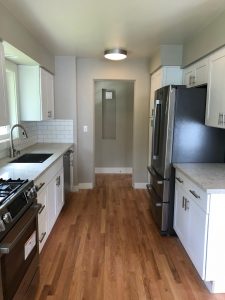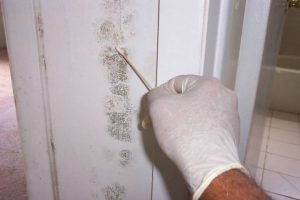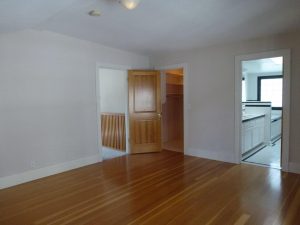Open Letter to Washington State Senator Kuderer
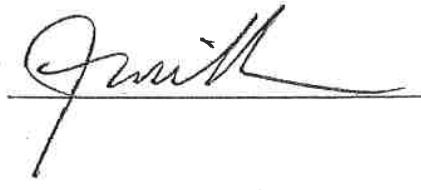
Dear Senator Kuderer,
I am writing to share concerns over SB 5600. As I read the proposed language, I am struck by the extent to which it goes beyond protection of tenants rights, and instead fundamentally infringes upon property owners rights.
It seems as though the legislation’s authors envision landlords as fat-cat tycoons. In my experience of managing properties for individuals in our state over the past 20+ years, that is far from the normal situation. Most of the thousands of landlords that my office has and does represent have one to three rental properties that they have come to own. Their concerns are breaking even as, although rents have been rising, they have not been rising in proportion to property values and the resulting properties taxes. Nor have they been rising at the same pace as the costs of materials and labor to maintain their properties. Most of the landlords we represent rely upon the regular collection of rent in order to be able to pay their properties bills in a timely manner. When tenants are late with rent payments, it in turn causes Landlords to incur additional costs in terms of time, stress, potentially late fees of their own, and even adverse impacts on their credit.
So- to address those well-known realities, late fees have historically been negotiated into the leases that landlords and tenants agree to enter into. Those fees are useful in both incentivizing tenants to pay their obligations in the manner they’ve contractually agreed to, and the late fees act to mitigate the costs that Landlords experience if tenants fail to meet their contractual obligations. There are already laws in place that limit the late fees that landlords can collect to not be more than 10% of the rental rate for a given month. This new legislation, which limits the late fees that tenants would have to pay in order to overcome an unlawful detainer judgment to just $75, actually incentivizes tenants to NOT pay the late fees that they are contractually obligated to pay then (in cases where the rent is either over $750/ month, or in cases that they’ve accrued late fees over multiple months that exceed $75). Further, it removes the compensation that landlords should receive from tenants for the hardship that tenant’s failure to fulfill their contractual duty to pay rent in a timely manner causes to the landlords.
Of even greater concern is the concept this bill introduces that: Even after a judge has determined that there is a valid basis for issuance of an unlawful detainer order, the judge should then subjectively consider factors outside the lease contract, such as whether or not an eviction cause the tenant a hardship, in letting that order be implemented. I have never once witnessed an eviction that DIDN’T cause the tenant a hardship. I’ve also never witnessed an eviction that wasn’t the result of hardship already caused to the landlord. That’s the nature of evictions. The language presented in this new bill would essentially take away a landlord’s ultimate remedy for a tenant’s failure to pay rent. Other language implies that: if the tenant isn’t ‘willingly’ not paying the rent, than it isn’t the tenants fault, so the tenant shouldn’t be evicted. Unless the legislature is willing to extend that protection to landlords from their mortgage holders, you’ll simply have grown the problem from an eviction to instead be a foreclosure.
Criminal law necessarily considers intent; contract law reasonably doesn’t typically consider intent. A party either fulfills a contractual duty, or they don’t. The reason that’s reasonable is that there are two equal sides to a contract, and just because one party may have had ‘bad luck’ (circumstances beyond their control), it doesn’t mean that the other party was in any way responsible for that bad luck. This legislation attempts to make Landlords the victim of their tenants bad luck. To open pandora’s box by asking judges to know why a party didn’t fulfill a duty is to invite arbitrary, discriminatory, and inconsistent outcomes. The further result will be to increase the costs that landlords have to factor in when arriving at what rent they can afford to charge. So- it will chase landlords out of the market, make them more restrictive of the tenants they will rent to, and cause them to have to increase rents.
You may also find the most recent Freakonomics podcast pertinent, which discusses the unintended consequences of similar rent-control legislation.
Thank you for your time and consideration.
Sincerely,
J. Michael Wilson
To see where this Bill is in the process: Go Here
This is what this what SB5600 seeks to change to the Residential Landlord-Tenant Act (RLTA)
- Increases Pay or Vacate Notice from 3 to 14 days.
- Requires civil legal aid resources listed on the pay or vacate notice.
- Requires “plain language” on the pay or vacate notice.
- Creates definition of rent which excludes all other costs and fees. Removes exemption form the RLTA for employees of the landlord.
- Removes language that states that leases end when they expire. Limits landlords ability to end a lease, requires termination of month-to-month lease.
- Requires a 60-day notice for rent increase.
- Landlord’s must apply payments to rent first, as defined in section 2.
- Landlord’s can not evict nonpayment of fees.
- Instructs the court to provide relief to a tenant defending a writ of restitution if, in the court’s discretion, relief is appropriate in the interest of justice.
- Allows a tenant to cure any judgment for non-payment within five court days’ by paying the principal amount of the judgment to reinstate their tenancy.
- Changes the bond amount to what will be on the amount of rent due either in the judgment or in the case of alternative service the court shall determine the amount of the bond based on the rent claimed.
- Increases the penalty for a landlord deliberately including prohibited provision in a rental agreement from $500 to one month’s rent or treble damages, whichever is greater.
- Requires landlords to provide copies of estimates to charge for damages at the end of an tenancy.
- Requires landlord to provide documentation to not be liable for withholding a security deposit.
- Removes the court’s discretion and requires court to award two times the security deposit if a landlord intentionally refuses to provide documentation of damages.
*Source: RHAWA
Let us know what you think in the comments.
Spring Cleaning for your rental property: A quick guide to your Spring inspection
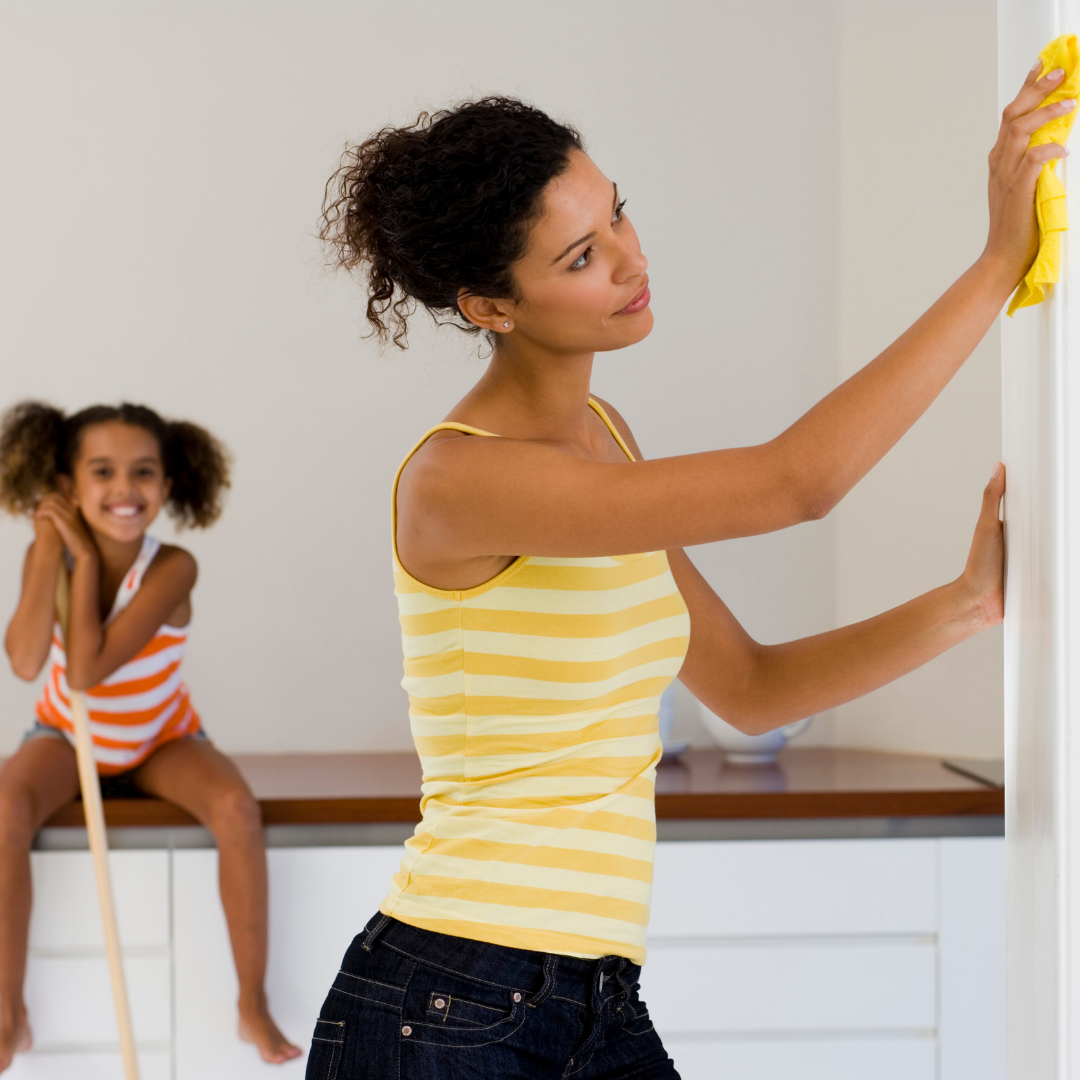
Spring Cleaning your Rental Property
Some things to remember for your Spring inspection of your Rental.
The sun is shining a little longer after you get home these days, and you’re starting to notice those cobwebs you didn’t see all winter, and that the closet has really gotten away from you. It’s time to binge Marie Kondo & get some Spring cleaning done.
But don’t forget your rental property. When you’ve tackled your own projects, make sure to get to your rental and inspect the damages of Winter.
Give your tenants 2 days’ notice, and inspect the property, don’t forget these three things to look for.
Inside
Filters:
Unless you know what you’re doing, send out an HVAC company to check on the furnace filters and ventilation systems in your house. It’s an important step to reduce dust and build up and prevent fires. Don’t forget your AC units, make sure to change the filter & spray the outside of the condenser with a hose (not a pressure washer).
Vents:
Put a piece of toilet paper to all your fans and vents to make sure they’re working properly.
Drains:
While you’re at it, inspect your washer and dryers and sinks and all things that drain.
Check the walls and floors for signs of leakage or build up in the utility room or wherever you store the washer/dryer.
Run the water in sinks and tubs/showers for 30 seconds to a full minute, make sure they’re draining properly. Check your dishwasher drain and make sure it’s free of debris.
Outside
Look Down:
Make a day of it with your green thumb, or send a professional out to clear the debris, refresh the top soil, rake the lingering leaves, and tear up those weeds and dead plants that aren’t coming back. Scrub the moss away from your patio and driveway, that will be a slip hazard in the rain.
Look Up:
Don’t forget the gutters! Clogged gutters will cause water to seep into your basement, especially if you have any windows below the ground level.
Getting help:
The earlier the better, you’ll want to get that professional scheduled earlier rather than later as their scheduled tend to fill up fast this time of year.
Landscapers pricing will depend on the size of the yard/garden area and the amount of work it needs. Expect to meet with them for a quote before they start work, or ask if you can send them photos for an estimate.
Mold
Inspect for mold that your tenants might not notice.
Check your crawl space to make sure that the plastic sheet is still covering the dirt and that there aren’t any leaks or wet marks. If your pipes typically freeze, or froze this winter, examine those while you’re at it.
Examine the window sills and tracks for any sign of mold – this is usually a tenant responsibility to clean but check your lease before asking them to tend to it.
Open and smell the washer – have the tenants run a cleaning cycle with a little bleach to get rid of any mildew smell.
Make sure to peak under the sinks and around toilets and faucets to leaking pipes, new and serious water damage. Water damage under the sink is normal wear and tear, but anything more severe could point to a larger problem that needs to be addressed.
What else do you look for when you annually inspect your investment? Do you have any other spring cleaning tips? Let us know in the comments section!
Rental Maintenance: Appliance Troubleshooting
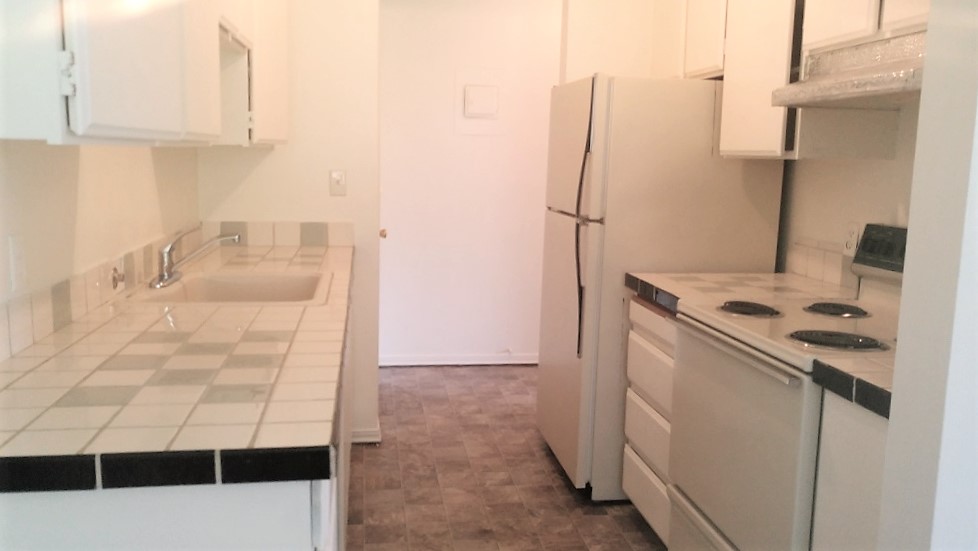
Hopefully you’ve read our previous blog posts about maintenance and issue prevention on sinks and toilets, and the bonus on snow. If you haven’t, go ahead and check those out. We’ll wait here for ya! 😉
 This week we’re covering appliances in the rental.
This week we’re covering appliances in the rental.
Every rental property has a variety of different appliances, if you’re lucky enough to have all new or mostly recent appliances, this blog post likely won’t apply to you. But for those of you out there with a refrigerator that seems like it could keep you safe during a nuclear attack, go ahead and give this a read.
Not every issue requires a vendor to come out and look at the appliance. If it can be fixed, there’s likely an easy solution.
Here are some tips to troubleshoot a malfunctioning appliance:
- Un-plug & plug it back in. Sometimes it just needs to be reset! If this isn’t an option, try to find a power button or a reset button.
- Find and read the manual. Most manuals are online now. Use the stickers on the inside of the appliance to find the Make/Model#/Serial Number. These will help you find the right manual on google.
- Call Someone. Though most vendors need to see the appliance to diagnose what’s wrong, sometimes they can help you troubleshoot on the phone. This might take a couple of tries before you find someone willing to help you on the phone, but let’s be real, aren’t those the vendors you’d return to anyways?
- Your landlord is also a good phone call to make, they might know about a recurring issue, with that model or that piece of equipment specifically and how to fix it. They will also know a good vendor to call.
This is just a list to get your started on your troubleshooting with a misbehaving appliance.
Should any problem continue, your landlord is a good resource for information. Not to mention that they should be kept well appraised of all the issues you run into should it escalate.
Do you have any other tips for tenants or owners? Leave us a note in the comments!
Rental Maintenance: Snow
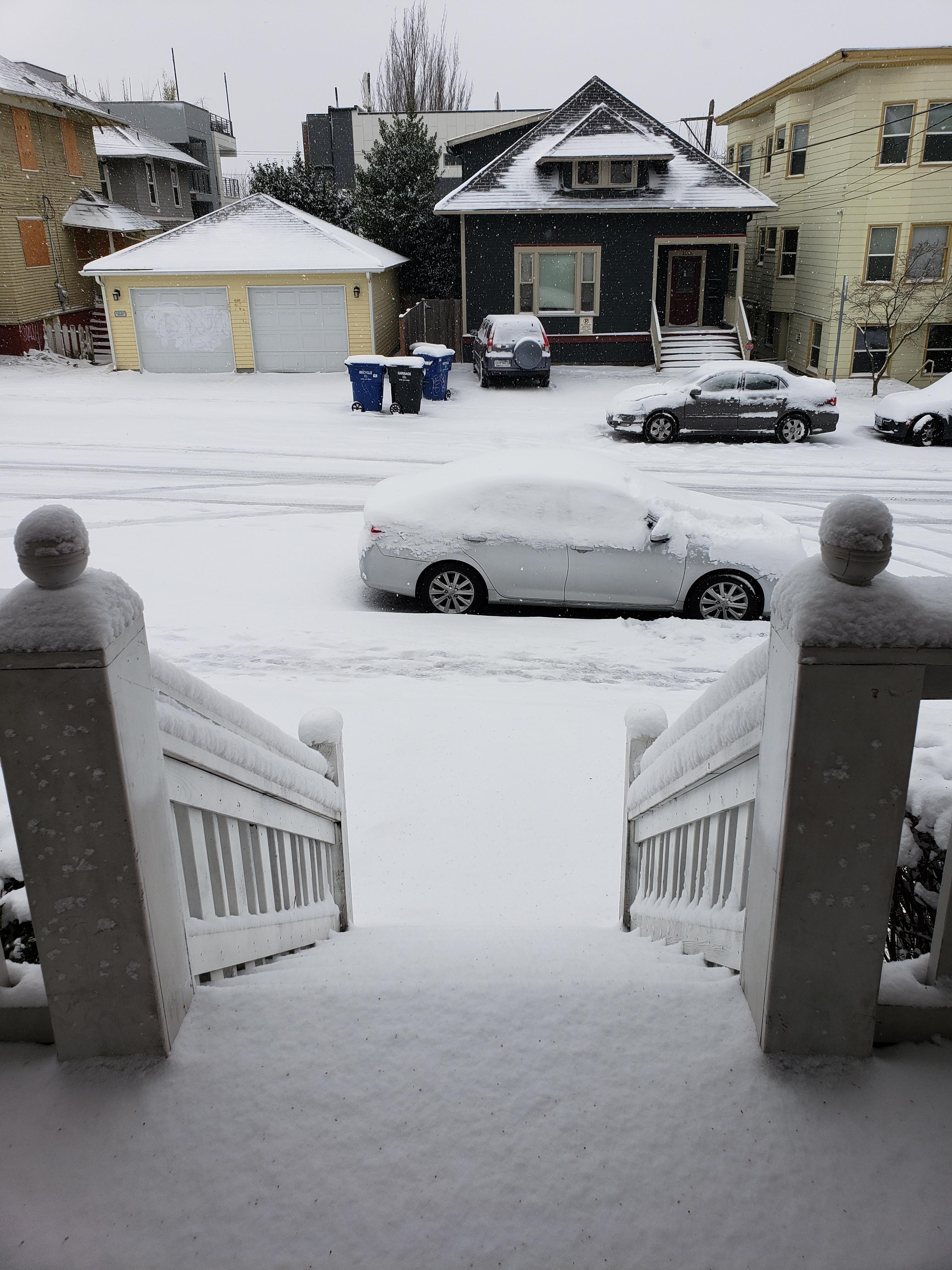
Rental Maintenance: Snowmaggedon 2019
What did we learn after Snowmaggedon 2019? Well, we already knew we couldn’t trust the weather predictions, and we knew we wouldn’t believe it till we saw it. Unfortunately, this year, when Seattle winter came, and it really took us by surprise.
What did this mean for landlords and tenants? It meant there are a few more preparations we should have been prepared for and should be for next time.
Typical Preparations
Every October, the office sends a Winterization Letter out to the current tenants to remind them of their responsibilities to protect the home per the lease. These are outlined in the lease, but often forgotten, and should especially be taken care of before it starts to get cold.
We remind the tenants to:
- Cover the external hose bibbs
- Replace the furnace filter
- Clear paths to prevent slips
These are the bare minimum, we know. They also don’t apply to everyone, but the hope is to inspire everyone to start thinking about winter preparations.
What we needed this year was a message that took it one step further.
Urgent Storm Letter
We received a message from one of our plumbing vendors about freezing pipes. We knew this information was important to get out as soon as we could to help tenants prevent and understand the repairs that would most likely happen.
We emailed the following letter out to tenants and added some important information:
With the recent inclement weather, this letter is to remind you that it’s the tenant’s responsibility to winterize your rental property. This includes:
- Covering Exterior Water Faucets (these are easy to order on Amazon)
- Clean furnace filters if applicable
Additionally, we’ve seen a rash of frozen and broken pipe issues in rentals. We would like to also suggest:
- Run the water at a trickle from the hot and cold faucets to prevent freezing. This is especially important for faucets on the exterior walls, as they are typically colder.
- Make sure hoses are disconnected from outdoor faucets and that those faucets are covered.
In this weather, plumbers are typically unable to help if water stops coming to the faucet. If you experience this issue, you will need to open the faucet that has no water coming out and put space heaters in the room or area. If there are under cabinet doors, leave them open. This will hopefully defrost the pipes and restore water flow.
We appreciate your ongoing efforts to keep your rental home in the best possible condition and avoid disaster. Stay safe and stay warm!
Next Year
This October’s Winterization Letter is going to include the storm warning information, but we’ve also decided to add some more preventative measures in case of another Snowpacolypse.
These extra measures include:
- Stocking up on snow melt
- Buy and keep a snow shovel for walk and driveways
- Create an emergency kits for power outages
- Check fire alarms and carbon monoxide detectors
We hope that by including these extra tips, tenants and landlords feel more comfortable when the next snow storm comes.
Do you have a plan for your rentals? Let us know about it in the comments!
Rental Maintenance: Toilets
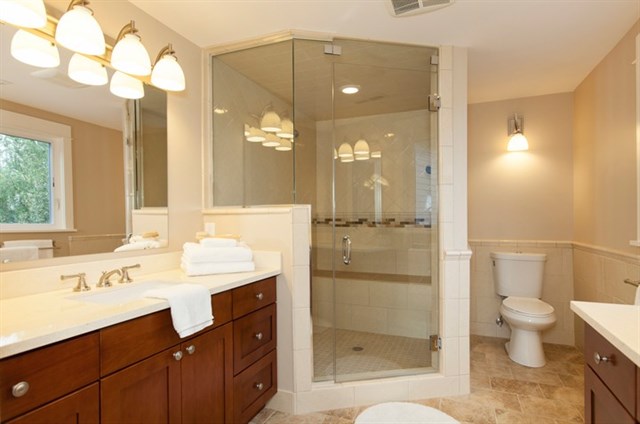
You might have read our last blog about sinks and disposals. This week we’re going to cover the restroom and toilets. This was written with Jay LaBrie.
Property Management isn’t glamorous. If you’ve spent even just a day working on rental maintenance, you know it’s not always pretty. Sometimes, we have to deal with backed-up toilets. As part of our Rental Maintenance series we’ve started, this information will hopefully prevent issues and crises. We’re looking to find those pain points, like clogged sinks, and make them a little less dramatic.
Flushing the wrong things down the toilet is another pain point between landlords and tenants that’s easily preventable. It can also get extremely costly.
Use this as a guide to avoid costly plumber trips and embarrassing back-ups.
The basics here are: If it will clog up the pipes, it shouldn’t go into the toilet.
Here’s a list of some items that you shouldn’t flush:
- Baby Wipes
- Even when they say they’re flushable
- Dental Floss
- Kitty Litter
- Even when it says it’s flushable
- Dried/Clumped Kitty Waste
- Hair
- Condoms
- Bleach
- Cigarette Butts
- Diapers/Sanitary Napkins/Paper Towels
- Chewing Gum
- Cotton balls/swabs
- Food
- Grease
- Little Critters like fish/snakes (c’mon give them a proper buriel)
- Medications/Drugs
etc. etc.
This isn’t an exhaustive list. Use this as a guide to avoid costly plumber trips and embarrassing back-ups. Think about the solubility of the item, the toxicity of the item, and the likelihood that it would tangle with similar or other objects that might be in the pipes.
Additionally, if the property is on a septic system:
- Nothing else besides septic safe toilet paper
If your place is on septic, we recommend making a sign for the toilet or the wall to remind guests of what can and what can’t go down the toilet. It’s also probably best to buy a trash can with a lid and keep it by the toilet.
Rental Maintenance: Drains
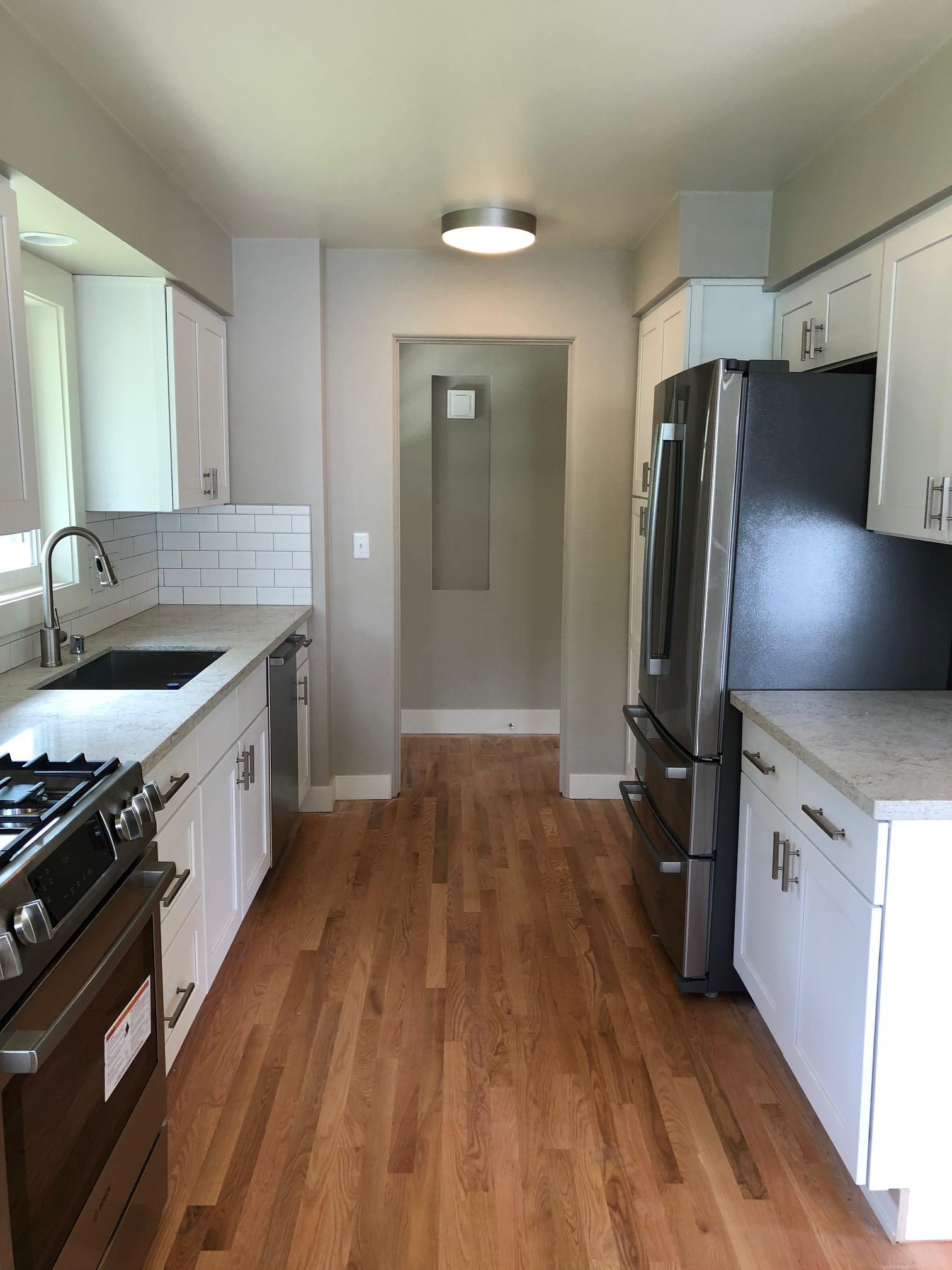
Over the next few blog posts, we’re going to focus on rental maintenance issues that are preventable when the owners and tenants are on the same page regarding the proper care of the home.
These suggestions are based on our experiences with owners and tenants and the common mistakes that end up costing both parties money when paying for the fix. As always, check your lease and make sure it carefully lays out all the items that are owners and tenant’s responsibilities. This will clear up any confusion and can make a good guide as you move forward with your relationship.
This thread was created with Jay LaBrie.
If you’re lucky enough to have a disposal in your rental, it’s best to treat it with care. Tenants and Owners alike should know how to prevent maintenance issues regarding the drain and the disposal.
Here are some things to never put down the drain/disposal:
Cooking Oils & Grease
Despite using cooking oil with almost any meal, you should not put excess oil down your drain. It can thicken and clog your drain. The average cost to professionally unclog a drain is $195. Furthermore, grease, such as that from meat, poultry, bacon, and gravy should never go down the drain. Like oils, it can clog and seriously harm your pipes.
Coffee Grounds
According to multiple plumbers, coffee grounds are one of worst culprits of clogged drains. Similar to the above, coffee grounds attract grease, build up, and then create a sludge-like texture. The result is a clogged drain that smells like old coffee. Instead of creating this problem, coffee grounds are perfect for composting. Check out these other amazing ways to use coffee grounds around your home. [INSERT HYPERLINK HERE]
Egg Shells
Another item perfect for composting is egg shells. While they are fragile, the shells will likely stick to your drain. Then, as you put other drain-safe items down your sink or garbage disposal, the shells attach themselves. Eventually, all this waste sticks together and forms a clog.
Pasta
Did you know the average person in North America eats about 15-1/2 pounds of pasta per year? That’s a lot of pasta. But, if you’ve ever cooked this staple, you know that it expands when exposed to water. Just like any other item we throw down the drain, we don’t want it swelling to the point where it could cause a clog.
Medicine
We all have those old medications somewhere in our medicine cabinet. Whether you no longer need it, or it’s well past its expiration, do not throw any medications down the drain or toilet. Instead, drop it off at your nearest pharmacy so they can dispose of it with other medical waste. The chemicals can impact water quality near you.
Potato Peels
Any item that expands or glues itself to the drain can cause serious damage. Potato peels, when put down a drain, turn into glue. As time goes on, those peels turn into a starch that hardens and blocks your drain. This applies to garbage disposals as well.
Beans & Rice
Just like potato skins, both beans and rice can turn into a starchy, dense substance that typically clogs drains. A few strains of rice or beans will not harm your pipes, but anything more than 1/8 cup should be disposed of in the garbage. Never put ANY uncooked rice in the drain.
Fruit Pits
To freshen things up in the kitchen, many homeowners assume it’s okay to place fruit pits down the drain or garbage disposal. However, fruit pits can easily crack, dent or break your disposal blades. In addition to fruit pits, don’t put grape skins or avocado seeds down your drains.
Seafood Shells
Many Americans like seafood but most do not enjoy the smell that comes with leaving the shells in the garbage. Just like chicken bones, shells from oysters, clams, and lobsters will not make its way down the drain or garbage disposal. Even if they do make their way past the blades without ruining your disposal, they won’t go all the way through the pipes and a blockage is sure to follow. Tie the garbage bag closed after you throw them away, and the smell will be contained.
Paint
Whether you’re using an oil-based paint or a water-based paint, do not throw the excess down the drain. It sticks and impedes other foods from getting through your pipes. (Luckily, many cities have hazardous waste facilities that dispose of all paints. If you’re not sure where one is, ask the clerk behind the paint counter or before you buy).
*
Some of these things might feel obvious to some, but considering how often we see these issues it’s definitely something landlords and tenants should discuss.
Who Foots the Bill
Make sure to read the lease to determine who’s responsible for these types of repair visits from handymen. For neglect and mis-use tenants are typically responsible for the bill, though some leases might spell out that the owner will cover that expense.
Prevention is Key
Regardless of who has to cover the expense, it’s always easier to prevent an issue. These things tend to fail on you just as family and friends are planning on visiting.
Keep this or a similar list on your fridge or near your sink to remind other tenants and guests.
In Case Something Does Go Wrong
Should something go wrong, tenants should always tell the landlord, even if they plan on picking up the bill. When you call someone in to help, make sure they are licensed and bonded. General handyman can usually fix issues with sinks and disposals, or they can direct you to a plumber who can.
2019: De-Clutter & Make More Money!
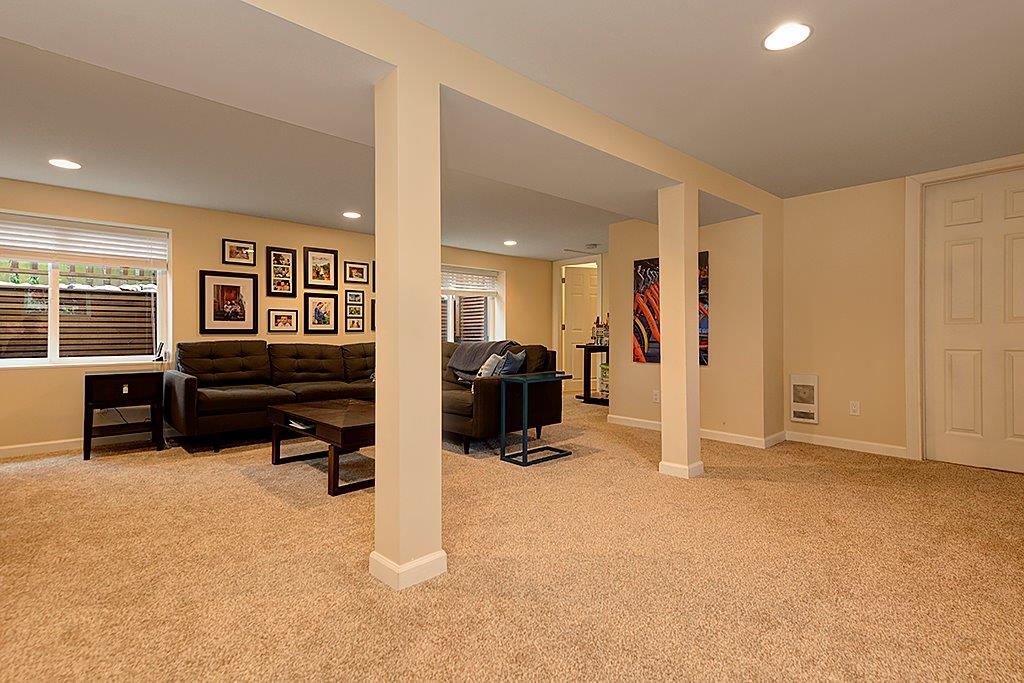
 Do you have a New Year’s Resolution to de-clutter your life? What about make more money?
Do you have a New Year’s Resolution to de-clutter your life? What about make more money?
Complete both by cleaning out that storage unit you call your rental!
Many of our owners use the garage or shed at their rental as storage for those items that are rarely used. Some owner even use it to store furniture for when they move back into the property. While not every one is on the same page here, it’s something to think about as we head into 2019, when it feels like everyone is trying to live a more minimalist lifestyle. Clearing these storage units out could make you more money from your rental in the end.
If this is something that appeals to you, here are some things to remember:
Give Notice to the Tenants that you’re coming by to clear the storage space out.
Follow your local laws and guidelines to warn your tenants that you plan to spend the day at the property. As a Landlord you have the right to access the property only for inspections, repairs or marketing of the property during tenancy so, be respectful of the tenant’s space. Ask if it’s okay with them for you to spend the time to remove the items. If they say no, which is well within their rights, plan to do it during the next vacancy.
Set expectations with them to make sure that your intentions are clear. If this is a one-day project or will take multiple trips, they need to know. If you have no idea what it will take, be sure to communicate with them when you do know.
Clean as efficiently as possible.
Remember to take the things with you or to the dump, don’t just reorganize. Use this work as a way to clear out the junk. How long has it been since you last needed or used any of the things in there? Would the tenant or rental benefit from anything in there? Ask yourself, and answer honestly, about each item.
Use a junk removal vendor to take the stuff away if necessary.
Does a storage unit make sense for your stuff? While it might come with a cost between $40 and $200, you would have access to the stuff without having to warn the tenants. Not to mention, if the tenants have that space that extra rent could pay for the storage unit.
Raise the rent.
Adding this extra square footage to the property calls for a price increase! At the next renewal period, with enough notice, raise the rent by however much feels fair for the tenants and for you. You can also use these if the tenants don’t plan to renew with you. Here are some suggestions, though if you don’t know what seems fair, you can you’re your local property manager for advice. Note, these might differ for your particular property, but you can use these as guidelines:
Garage: Adding secure, covered parking to your rental is a great value add to your current and future tenants.
Shed (Fixture): Adding storage for the tenant is a great addition, but not every tenant needs it. Plus, they tend to be smaller than the garage so the value add is probably on the lower end.
Shed (Removable): If you can take the shed with you, you would add valuable lawn space to the rental property. This valuable land is perfect for kids or pets and would commend a raise to the rent if you hadn’t had it to begin with.
Basement (Unfinished): Adding this storage space for your tenants that’s attached to the house is a great value add. Having that storage space would widen the net for potential tenants from just new transplants to families remodeling their home and need a place for the extra furniture. The rental price increase depends on how big the basement is, or how much of the stuff you can remove.
Basement (Finished): Not only would your tenants get extra storage space, with a finished basement they could gain another family room, or even potentially an extra bedroom or office (depending on the windows down there). If you can add a bedroom you can increase the price quite a bit. Otherwise, consider the other family or bonus rooms in the house and make the price decision based on the current square footage.
Not sure what you could get for your extra space at your rental? Is it even worth it to free that room up for the tenants? Contact your local property manager for a valuation.
Mold in a Rental
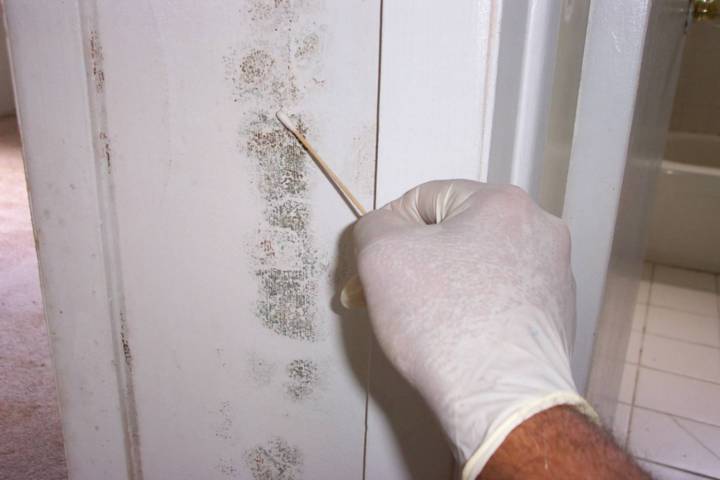
Seattle, and the PNW are their own little Mold Farms. You can’t go anywhere without some sort of moisture build up or something decomposing in this climate. In this environment, property owner and tenants must work together to combat mold in a rental and prevent the potential harmful health effects.
Property Owners
Know the Law
The first, most important thing as a property owner/landlord is to make sure your tenants have the appropriate handout that’s required by WA State Law (RCW 59.18.060 – 13). This handout is not only required, but also a great resource for how to prevent and treat mold issues. Get it here.
Identify
Next, identify high-risk areas in your rental property. Think about the seen and unseen parts of your property that could grow mold:
- Windows (especially aluminum framed windows)
- Showers/tubs/sinks
- Under the kitchen sink
- Appliance leaks, especially those that are hard to move like the refrigerator
- Rooms with poor ventilation – especially ones with no fans or opening windows where wet things might be stored.
- Roof leaks and foundation cracks
- Crawl spaces that aren’t properly secured from moisture
Action Plan
After you’ve identified the areas of the rental home that need extra attention, put a plan in place for you and your tenants to prevent and treat those areas. It’s important to set expectations about what is an owner’s responsibility and what the tenant oversees. Each room/area will have it’s own plan, but some things to think about are:
- De-humidifiers
- Keeping cleaning supplies readily available
- Keeping fans running and windows open when practical
- Heat should be set to 65 degrees or higher in the unit at all times (or some other reasonable temperature that works for the property)
Tenants
You will likely do a walk-through with the landlord when you move in and sometimes mold isn’t obvious. Sometimes it takes a while to notice that there’s a build up in the windows or in the shower. Regardless of where the mold is, it’s important to know what you are responsible for and what the landlord has to help you with, according to the law.
Know the Law & Action Plan
So first thing’s first, read that mold pamphlet the landlord provided you.
At the walk through, make sure to talk with the landlord about high-risk areas for mold and ask what they would prefer you to do when you notice it. If they have a specific cleaning regimen, follow that. They likely created it to reduce damage to the surfaces, be cognizant that bleach isn’t always the answer.
Do your Research
When you notice something is wrong, do a little research to determine if it is mold, or just mildew. Additionally, what kind of mold or mildew, so you can best work with your landlord to clear it out. Eventually, you will notice the pattern of where the mold grows, and what the owner wants to do with it. But when in doubt, too much communication is always the best route.
Watch out for Health Issues
If you’re not seeing any spores or discolorations, but you’ve noticed a decline in your health, be sure to talk to the landlord about that as well. There might be some hidden mold that you can’t see. Remember though, if you didn’t see it, your landlord likely didn’t either.
Health issues to be aware of:
- Eye, nose or throat irritation
- Difficulty breathing and shortness of breath
- Coughing and wheezing
- Headaches
- Dizziness and nausea
- Fatigue
- Worsening of allergies and asthma
Remember that not everyone will be equally affected by mold and that children and the elderly are much more sensitive. Take notice of these changes and work with your doctor and landlords to come to a solution.
Everyone
Some tips for removing mold:
- Bleach is best for non-porous materials like tiles and bathtubs or sinks but should not be used on wood or painted areas.
- Hydrogen Peroxide works well on cloth materials like cloths, floors and fixtures. Spot Test Before Using.
- Baking Soda Solutions works best when paired with White Vinegar, but the best part of baking soda is that it doesn’t leave an odor behind, whereas vinegar does. Baking Soda is also a great preventative tool since it absorbs moisture.
- For More Information: Go Here
Vacant Listings
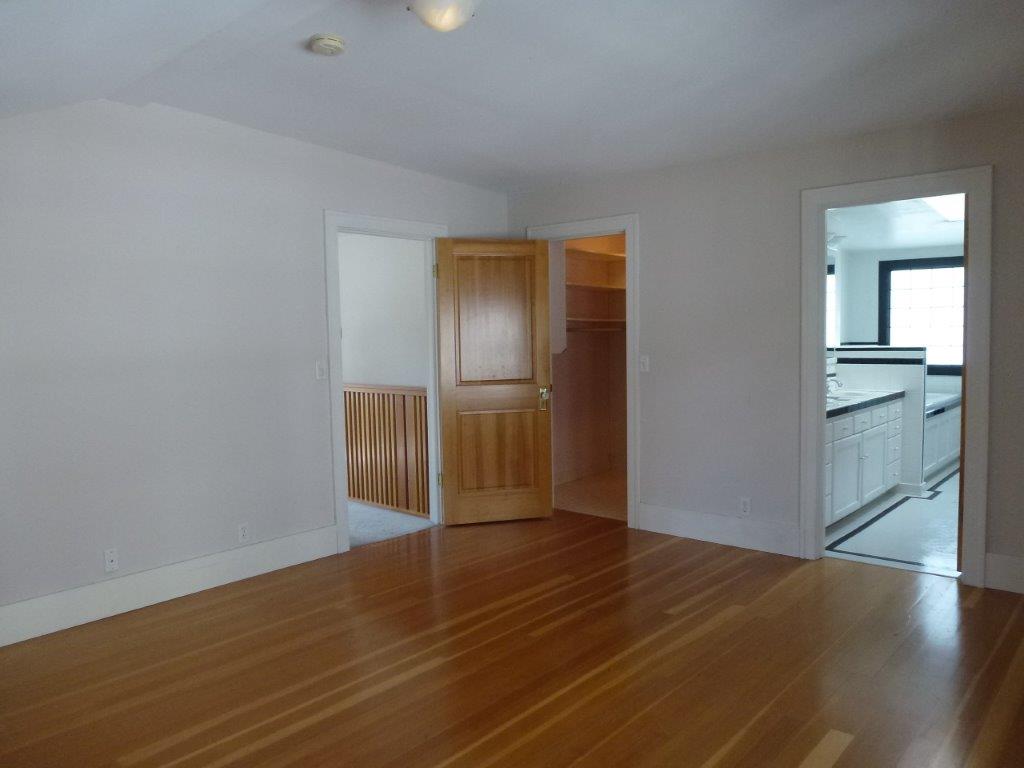
Vacant Listings
 If your rental has been sitting on the market, vacant, for what seems like forever, you’re not alone. It’s that time of year and we’re not going to see it let up until March, when the busy season starts to pick back up. So, while you’re sitting with a vacant home, it’s time to think about what you’re going to do to make up for the lost income.
If your rental has been sitting on the market, vacant, for what seems like forever, you’re not alone. It’s that time of year and we’re not going to see it let up until March, when the busy season starts to pick back up. So, while you’re sitting with a vacant home, it’s time to think about what you’re going to do to make up for the lost income.
Here are some suggestions to get your brainstorm started:
Vacation Rental
Before you begin, check your local laws surrounding the controversial short-term rental market, then move forward as you see fit for your investment property.
With the holiday season coming up, make sure your property is marketed to visitors in town for the season. Implement minimum night stays and highlight the tourist attractions nearby. If your unit is perfect for hosting, or as a getaway from all the bustle, make sure to include those aspects in your description, and maybe even the title!
Use your social media to reach out and tell your connections about the opportunity. Especially if you know they need some extra space, or a decent oven, share your short-term rental link with them personally. Reach out to the groups and events that are relevant to the rental. Either local communities, or if you know there’s a vacancy over a weekend when there’s an event going on nearby. Make sure to cast a wide net to friends and strangers alike.
If you decide not to rent the property with a short-term service, make sure your insurance company knows that the property is vacant and will likely be for a couple of months while you find a new tenant. Your coverage is likely going to change if no one is in the unit.
Renovate
If you’re in the position with some savings, take advantage of the vacancy to renovate something you’ve been meaning to update.
Update & Prevent Issues
Does that bathroom need new flooring around the tub? Maybe you need to get rid of that glass sliding door in there that’s really just a mold farm? Your last tenants complained that the washer made their clothes smell like mildew, maybe that’s something to fix for the next round of tenants. (psst – this is also a really great way to retain tenants once they’re in!)
Do you find that your tenants can’t take care of the yard the way you want? Fix it. Adding gravel is a great way to attract pet owners.
Do your locks need an upgrade? Look into coded door knobs and see if they’re right for your property to increase security and do away with the hassle of keys!
Attract Millennials
What about adding a plug for an electric car in the garage? Or a solar panel on the roof that takes care of the kitchen appliances? Even something as small as replacing all the bulbs with energy efficient LED bulbs can be a selling point to eco-friendly Millennials.
An outdoor living space can also attract millennial tenants who want to socialize and host their friends in the summer.
Consider upgrading your rental system to something that’s more online based. Can tenants pay online? If not, can they wire directly to your account? Maybe you can try Venmo or another payment app that you feel comfortable working. You’ve got time to test a few out and see which is best for you and your business.
Inspection
Don’t know what’s wrong with your property? Get a home inspector to come out and take a look. Use their report to make changes and upgrades to prevent future failures.
Check on the oil levels, the furnace filters, and dryer vents to prevent fires.
Look for signs of infestation, with no one living there, there’s no one to report the sound of scratching in the walls or seeing ants near the sink. If you’re not confident in your own abilities to spot a rodent or other pest, hire someone to give you a quote.
Take New Photos
The more recent the photos the better, so update those on your listings as often as you can. With a vacant listing, it’s always much easier to take great photos that show off the space.
When taking new photos make sure:
- Nothing is on the counters (just put that 409 bottle in the cabinet for a second)
- The floors and corners are swept and clean; carpets are vacuumed
- All the lightbulbs are on and working
- Windows are clean and have no finger prints on them
Get ready for new tenants!
These types of smaller projects can be done in the winter to maximize your rental value in the spring, when more tenants are looking, and especially if they’re looking for an upgrade.
Info for this blog post came from the following sources:
Rent Prep: Must Have Tenant Amenities for Millennials Link
AirBnb Support: What legal and regulatory issues should I consider before hosting on Airbnb? Link
VRBO Discovery Hub: Regulation Resource Link
Latter & Blum Property Management: 5 Ways to Attract Millennial Renters Link
Hosting Guests for the Holidays

 Hosting Guests for the Holidays: A Guide
Hosting Guests for the Holidays: A Guide
Maybe you have family coming into town or maybe you’re the family going to visit for the Holidays.
Keep your family safe and healthy with this guide. We’re thinking outside the box for you so you can think about what really matters, the food and the beverages.
If the host lives in a rental property, here are some items to think about before setting up the pull-out couch.
Check the lease for what it says about guests.
Do you have to get permission from the landlord for the stay?
Are the minimums and maximums for how long someone can stay at the property?
This is important to make sure you are not in breach of your contract. It’s likely your landlord just wants to know who is in the house at what time. They’ll typically be understanding that it’s the holidays that guests are a normal part of that.
Get the property in shape for guests.
Don’t forget to handle anything that’s the tenant’s responsibility for keeping the property in good condition & most importantly, safe.
Things like cleaning up the moss and de-icing the walk ways will keep you and your guests safe, especially if they’re walking up with luggage or worse – their famous casserole.
If there is something you notice that is the landlord’s responsibility, give them time to fix it before your guests arrive. Check that the oven is working properly, that your dryer is drying, and that your heat is on. Don’t forget the fire alarms and carbon monoxide detectors.
Clean.
Not that your place isn’t in tip-top shape, obviously. But think deep clean to avoid allergy flare ups and colds spreading throughout the house.
Bleach your towels to stop the spread of diseases and infections, stock up on laundry detergent for the dirty clothes and sheets, clean the carpets with a pet enzyme to clear it out of any pests and dander.
Then tackle the fridge to make room for leftovers and wipe out that oven to avoid smoke and fire. Last but not least, disinfect the door handles and phones (does anyone have landlines anymore?).
Are you staying with your family in their rental? Share this article with them! Links at the top!

 Facebook
Facebook
 X
X
 Pinterest
Pinterest
 Copy Link
Copy Link




